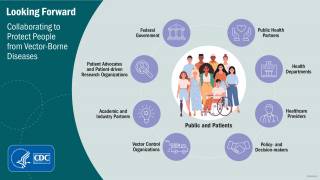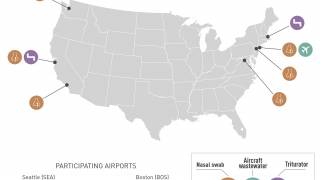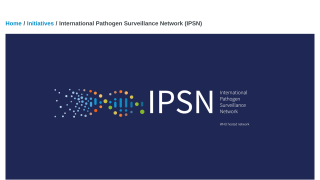Returning From Ebola Hot-Zones Has Constraints

The US Centers for Disease Control and Prevention (CDC) issued updated recommendations on April 16, 2019, for organizations sending US-based healthcare or emergency response workers to areas with Ebola virus outbreaks.
This is an important CDC update since the Democratic Republic of Congo (DRC) has reported a 1-day record number of new Ebola Zaire cases (23) on April 26, 2018,
But there is some good news.
The number of people vaccinated with Merck’s v920 (VSV-EBOV) vaccine candidate continues to increase, with 105,757 people immunized since this Ebola Zaire outbreak began on August 8, 2018.
V920 is an investigational vaccine candidate to prevent the onset of Ebola Zaire, a prime/boost candidate vaccine based on Ad26- and MVA-vectored components (Ad26.ZEBOV/MVA-BN-Filo) and the Ad5-EBOV candidate vaccine.
Unfortunately, the V920 vaccine is not available in the USA.
These CDC recommendations are focused on ensuring the health and safety of those visiting Ebola hot-zones before, during, and after their deployment.
- Pre-deployment recommendations include educating workers about Ebola, travel vaccines, healthy behaviors, personal protective equipment, and travel health insurance.
- During-deployment recommendations include remaining in contact with workers, periodically asking about any symptoms of or exposures to Ebola, and contacting in advance the US state or local health departments that have jurisdiction in the areas where workers will be staying after arrival in the United States.
- Post-deployment recommendations include staying in contact with workers for 21 days after they leave the outbreak area while they self-monitor for symptoms of Ebola. The CDC recommends that all workers with potential occupational exposure to Ebola virus who are traveling to the United States undergo a health and exposure assessment before their departure from the outbreak area.
Moreover, the CDC prohibits travel to the United States by commercial airline for any person with symptoms compatible with Ebola and potential exposure to Ebola virus, or any person with known unprotected exposure to Ebola virus even if the person is asymptomatic.
And, the CDC says it will assess such situations case by case and, if necessary, may use federal public health travel restrictions to safeguard the public’s health.
CDC will support organizations or workers in requesting assistance from the US Department of Health and Human Services and the US Department of State for non-commercial transport to the United States.
For urgent consultations regarding symptomatic or potentially exposed workers, please call the CDC Emergency Operations Center (available 24/7) at 770-488-7100. For questions about these recommendations or additional advice regarding predeparture exposure and health assessment, please email [email protected].
To alert international travelers, the US Centers for Disease Control and Prevention (CDC) expanded its Level 2 Travel Alert regarding the Ebola Zaire outbreak in the North Kivu and Ituri provinces of the DRC.
This expanded Travel Alert, Practice Enhanced Precautions, published on March 6, 2019, says ‘travelers to the DRC could be infected with Ebola if they come into contact with an infected person’s blood or other body fluids.’
Additionally, travelers leaving the Ebola outbreak area may be subject to travel restrictions or monitoring by ministries of health in other countries and should check in advance for any requirements.
Moreover, any person with possible exposure or Ebola-like symptoms will not be allowed to travel, unless the travel is part of a coordinated medical evacuation.
Additionally, the US State Department updated its Level 3 Travel Advisory on April 9, 2019, said 'Do not travel to the eastern DRC and the Kasai provinces.’
The CDC says travelers to central Africa should get recommended vaccines before travel, take medicine to prevent malaria and avoid bug bites, and follow other precautions to stay healthy and safe, such as following food and water precautions.
The CDC says travelers should seek medical care immediately if they develop fever, headache, body aches, sore throat, diarrhea, weakness, vomiting, stomach pain, rash, or red eyes after traveling to the DRC.
Before you go to a doctor’s office upon your return to the USA, call ahead and tell the doctor about your recent travel to the DRC and any symptoms you may have.
To schedule a pre-trip travel vaccination counseling session with a local pharmacy or doctor, please visit Vax-Before-Travel.
Our Trust Standards: Medical Advisory Committee

























